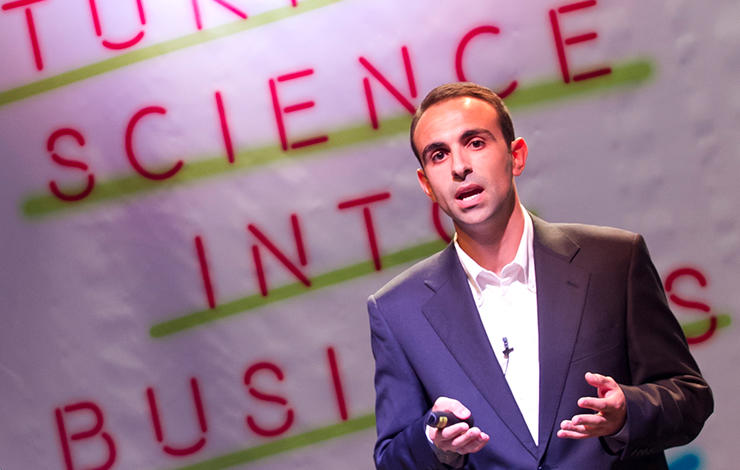12-09-2017

Ricardo Chagas, researcher at LAQV-REQUIMTE (Sustainable Chemistry PhD Program), was distinguished with the SIVE OENOPPIA 2017 Prize (3rd edition), for the research work developed during his PhD on Protein haze formation in white wine - The critical involvement of sulfur dioxide in protein aggregation mechanism. Ricardo Chagas’s PhD research was carried out at Faculdade de Ciências e Tecnologia - Universidade Nova de Lisboa (FCT NOVA), under the supervision of Luísa Pinto Ferreira and Ana Lourenço, both professors at FCT NOVA and researchers at LAQV-REQUIMTE, in collaboration with Ricardo Boavida Ferreira, professor at Instituto Superior de Agronomia - Universidade de Lisboa (ISA-UL).
Ricardo Chagas explains that the results presented show “how sulphur dioxide, an almost ubiquitous wine additive used in the industry, interacts with wine proteins and induces their precipitation, a phenomenon commonly known as wine protein haze. This was the first time that this reaction was described in wines and it can be responsible for the main mechanism occurring in protein unstable commercial wines.”
The €7500 prize amount will be used for the development of alternative stabilization technologies to minimize the impact of white wine protein haze formation.
The two awards attributed by SIVE (Società Italiana di Viticoltura ed Enologia) for research and development aim to reward researchers who obtained results of significant practical impact on grape and wine production. The SIVE OENOPPIA award distinguishes international research and is supported by Oenological Products and Practices International Association Association (OENOPPIA). The ASSOENOLOGI VERSINI Award, supported by Association of Italian Oenologist and Enotechnicians (Assoenologi), is restricted to researchers working in Italy. In 2017, the 6th edition of the VERSINI Award was attributed to Daniela Fracassetti, Sara Limbo and Antonio Tirelli, from the Department of Food, Environmental and Nutritional Sciences (DeFENS) University of Milan (ltaly), for her work in “Light taste in white wine: formation mechanism and prevention”.